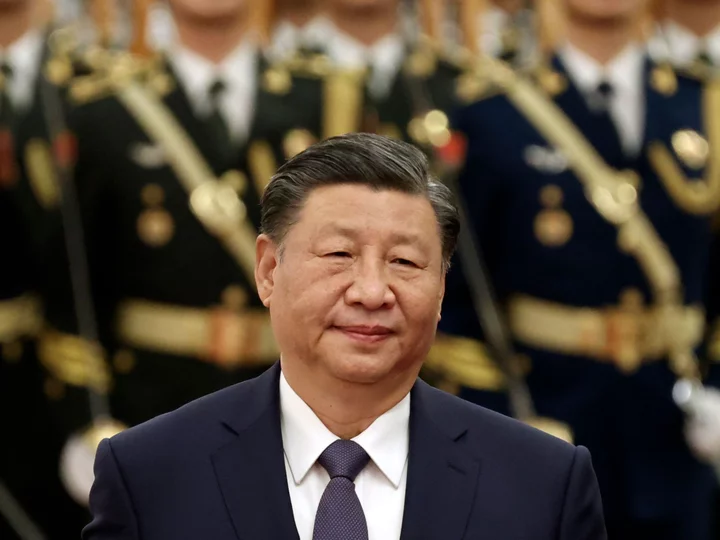Thailand’s election-winning Move Forward Party had a TikTok advantage: while all the country’s big parties used social media to get their message out, Move Forward did it more effectively and creatively, helping it capture younger voters and outperform pre-balloting polls.
The party, which unofficially won 151 seats in the 500-member lower house, didn’t avoid more traditional campaigning, such as street posters and door-to-door stops. But its consistent reliance on social media platforms — especially TikTok — helped translate virtual popularity into actual votes more effectively than other parties.
Read More: Everything You Need to Know in Aftermath of Thailand Election
“Move Forward uses user-generated content on TikTok because young people are on this platform and TikTok has the most users,” former Prime Minister Thaksin Shinawatra — whose daughter was the face of the rival Pheu Thai party — in a talk on the chatroom app Clubhouse. “Content went viral thanks to ‘organic election campaigners,’” he added, referencing Move Forward’s ability to engage volunteers to extend the party’s messaging.
It’s not the first time that social media has played a key role in a regional election: In neighboring Malaysia, a conservative Islamist party relied on it to appeal to young Malay voters and win the most seats of any single party during general elections last November. In the Philippines, Ferdinand Marcos Jr. also used social media to paint a rosy picture of his father’s former dictatorship to younger voters, who helped deliver him a landslide victory in presidential elections last year.
Read More: TikTok Banned in First US State, Bringing Legal Test to Montana
As the Thai election neared and Move Forward built support among a younger, tech-savvy demographic, its official account on TikTok saw the number of followers surge to about 2.8 million from below 400,000 at the start of April.
In addition, the number of followers on party leader Pita Limjaroenrat’s official Twitter account climbed to more than one million before the vote. One campaign video, released a day before the election date, reached the same milestone on the party’s official Twitter account.
There were 54.5 million internet users in Thailand in January 2022, equivalent to about 78% of the total population, according to DataReportal. While Facebook is the most popular, with more than 50 million accounts in the country, TikTok is also widely used, with nearly 36 million users.
Thaksin acknowledged Move Forward’s efforts, saying it essentially derailed the marketing campaign of Pheu Thai, the party he backed. But he also laid the blame for Pheu Thai’s shortcomings at what he called vote-buying by other parties and “information operations,” without giving details or saying who he thought was responsible.
Social Media Favorite
Move Forward tapped a range of strategies to draw attention, from a focus on fiery speeches by Pita and other candidates on issues like the monarchy, to more casual discourses on local food.
The varied approach helped some of the party’s candidates score breakout hits, such as Move Forward’s Rukchanok Srinork, a cat-loving activist who first gained popularity on Clubhouse discussions. The 28-year-old, known as “Ice,” attracted further attention during the campaign with posts featuring her canvassing votes while riding around on a bicycle, and others of her holding a blank board, asking users to help introduce her by filling in the blank and then featuring their submissions.
The number of followers on Rukchanok’s TikTok account surged in less than a month by more than half a million, and she triumphed in the Bangkok constituency she contested with a 20 percentage-point margin against the scion of a political heavyweight family that has dominated the seat for decades.
The party “has been most effective at using social media to communicate directly to its supporters, and this is something that’s quite novel in Thai politics,” said Napon Jatusripitak, a visiting fellow at the ISEAS-Yusof Ishak Institute in Singapore.
Nowhere was payoff more clearly seen than in Thailand’s capital, where Move Forward managed to sweep 32 of Bangkok’s 33 house seats. The one candidate to survive the onslaught was Pheu Thai’s Theerarat Samrejvanich, who also attracts a devoted social media following.
Referring to Move Forward, Napon said, “They have used social media platforms as a way to bridge the gap between social movements and parliamentary politics, there’s no other party like this.”









